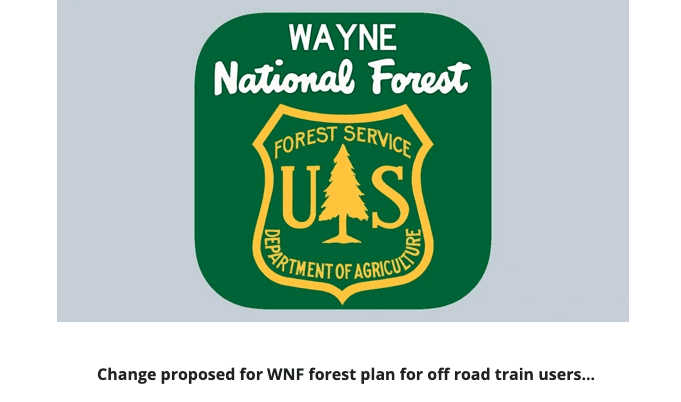The Forest Services says, “Nothing to Report.”
So here’s some loose ends from in or around October.
On September 29, the Blue Mountains Biodiversity Project persuaded the district court to enjoin 78 acres of a logging project adjacent to the Walton Lake Recreation Area on the Ochoco National Forest. The Forest Service had failed to adequately consider site-specific impacts. (This case was introduced here.)
- Griffin Half Moon timber sale
Attorneys for plaintiffs in Klamath Siskiyou Wildlands Center v. U. S. Bureau of Land Management have announced that the district court for the District of Oregon has enjoined the Griffin Half Moon timber sale in southwest Oregon because of the BLM’s failure to properly analyze the effects of the project on the great gray owl. The BLM had argued that, because it tiered to the 2016 FEIS for its resource management plan (RMP), it was therefore entitled under NEPA to not prepare further analysis regarding the owls. Having not seen the opinion from the district court, I don’t know whether the district judge adopted all of the magistrate’s specific reasoning, but the magistrate judge had concluded in January that:
“In sum, while the 2016 RMP allocates a large network of reserve lands for great gray owls and predicts a long-term increase in species habitat, it-fails to contain a site-specific Project area analysis of effects on great gray owls… Although the Project implements a timber management plan directed under the 2016 RMP and FEIS, the BLM’s approach to assessing effects on the great gray owl – within the REA (project EA) and through tiering – is not supported under NEPA”.
WildEarth Guardians, Western Watersheds Project, and Rocky Mountain Wild are suing the U.S. Fish and Wildlife Service over their management of endangered black-footed ferrets in Wyoming as a “nonessential experimental population.” Lack of reintroductions, coupled with the proposed rollback of protections for a previously reintroduced population in Thunder Basin National Grassland, motivated the group to challenge Wyoming’s arrangement with the Fish and Wildlife Service.
On October 29, the parties in Friends of the Wild Swan v. Haaland adopted a settlement agreement which halted efforts by the U. S. Fish and Wildlife Service to delist the Canada lynx based on shortening the time span for considering climate change threats, from 2100 to 2050, because of what officials said were uncertainties in long-term climate models. Instead, the FWS will prepare a recovery plan by December 2024. (This news release includes a link to the agreement.)
- Canada lynx trapping
The Center for Biological Diversity has filed a 60-day notice of intent to sue USDA’s Animal Services division over the inadequate analysis of the risks to lynx as a result of the agency’s wolf-trapping program in Minnesota.
In Montana, after legislation promoting trapping of wolves, the state has agreed to abide by a previous settlement whereby it managed two lynx protection zones covering occupied lynx habitat in northwest Montana and the Greater Yellowstone area where special trapping regulations were designed to protect lynx, and indirectly, grizzlies.
On October 25, the U. S. Fish and Wildlife Service published a proposed rule to designate critical habitat for the coastal distinct population segment of Pacific marten on 1,413,305 acres of land in northwestern California and southwestern Oregon. (The article includes a link to the proposed rule.)
On September 28, the U. S. Fish and Wildlife Service proposed to list the Penasco least chipmunk as an endangered species, and proposed critical habitat in New Mexico. The species is found on the Lincoln National Forest, almost exclusively in designated wilderness.
A snowboarding social media prankster who has repeatedly sparked the ire of the National Forest Service, including one incident in which he was photographed purportedly defecating in the waters of the off-limits Maroon Lake near Aspen, was found guilty Monday of breaking into a closed area and snapping pictures of himself doing jumps on a snowmobile to promote his ski-gear company. The magistrate judge found him guilty of taking photos on National Forest Service lands to sell merchandise without getting a permit.” (Apparently no first amendment problems with these photos.)
In October the federal court in Jackson, Wyoming found convicted an individual of three misdemeanor citations: residing on forest lands, leaving a campfire unattended and leaving a campsite in unsanitary conditions on the Caribou-Targhee National Forest.
Kellogg’s may be in a jam after a $5 million class-action lawsuit was filed over the alleged lack of the berry in the company’s frosted strawberry-flavored Pop-Tarts. The complaint filed in August claimed that Kelloggs gives “consumers the impression the fruit filling contains a greater relative and absolute amount of strawberries than it does” because “its filling contains a relatively significant amount of nonstrawberry fruit ingredients – pears and apples – shown on the ingredient list.”


Jon, thanks for all these interesting items! As for Pop-Tarts, I rarely eat them, but the vending machines at Timberline Lodge & Ski Area, on Mt. Hood in Oregon, have “strawberry” pop tarts in two-packs, and consuming a few of them in the Day Lodge is a tradition in my family. I don’t care what’s in ’em. They’re awful, but I love ’em.
And then there’s Subway “tuna.”
https://news.bloomberglaw.com/litigation/latest-subway-tuna-filing-alleges-dna-test-shows-other-species